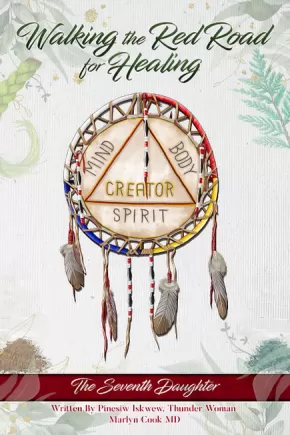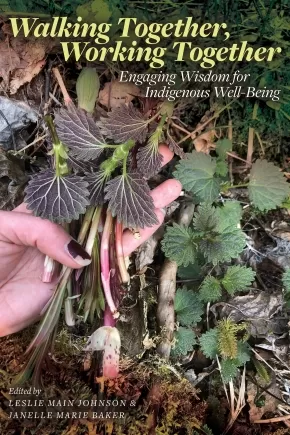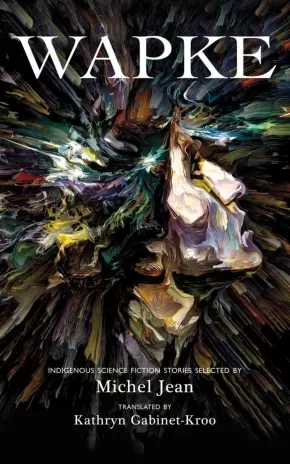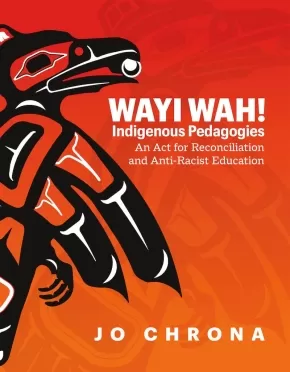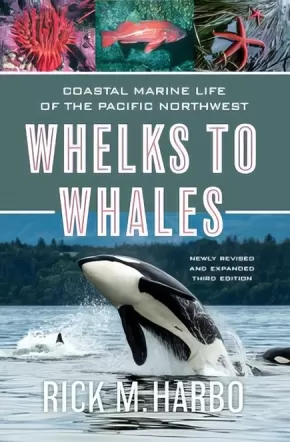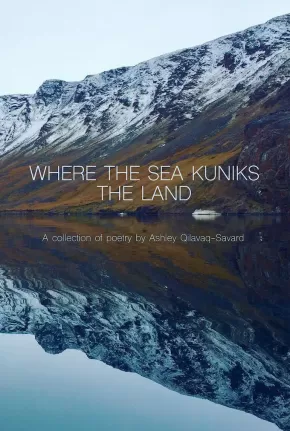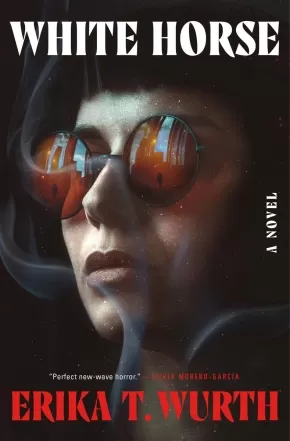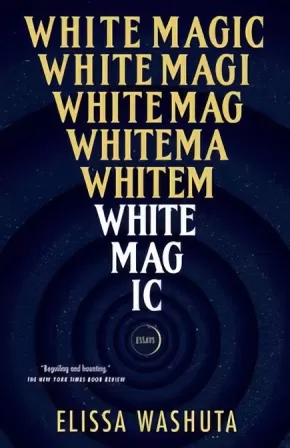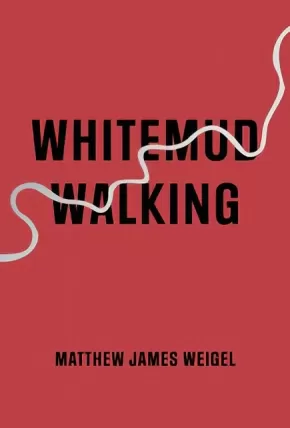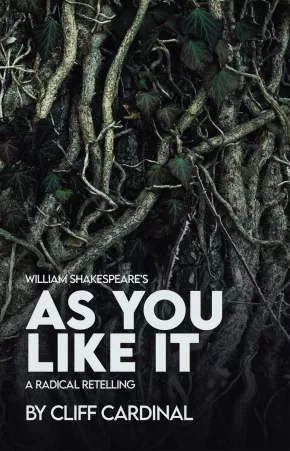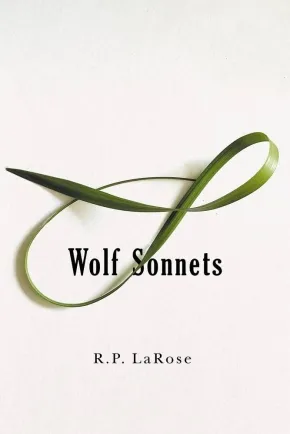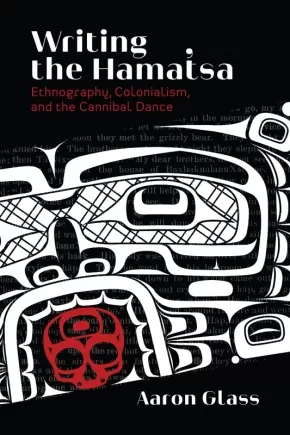Books
Synopsis:
Pinesiw Iskwew, Thunder Woman, Dr. Marlyn Cook, member of Misipawistik Cree Nation is the author of Walking the Red Road for Healing. This book is based on her life and journey as a Cree Woman, Pipe Carrier, Sundancer, Sweat Lodge Keeper, and medical doctor (graduate MD 1987). She believes the approach for healing must be holistic and that our Traditional Healers work alongside physicians in our Indigenous communities. Dr. Marlyn Cook shares her own experiences of colonialism and how this affected her, her family and her community. Through her reflections of her Indigenous Knowledge, her Traditional Teachings of Ceremonies and Medicines, she acknowledges the resilience of communities in their healing and provides ways to heal. Dr. Cook’s intention in this powerful book is to bring us together in Truth and Reconciliation. This book will resonate with health, social, and justice prac
Educator Information
Keywords / Themes: Adult Education, Health & Healing, Traditional Teachings, Indigenous Knowledge, Truth and Reconciliation.
Additional Information
Pages: 200 | Paperback
Synopsis:
This collection takes a holistic view of well-being, seeking complementarities between Indigenous approaches to healing and Western biomedicine. Topics include traditional healers and approaches to treatment of disease and illness; traditional knowledge and intellectual property around medicinal plant knowledge; the role of diet and traditional foods in health promotion; culturally sensitive approaches to healing work with urban Indigenous populations; and integrating biomedicine, alternative therapies, and Indigenous healing in clinical practice. Throughout, the voices of Elders, healers, physicians, and scholars are in dialogue to promote Indigenous community well-being through collaboration. This book will be of interest to scholars in Indigenous Studies, medicine and public health, medical anthropology, and anyone involved with care delivery and public health in Indigenous communities.
Contributors: Darlene Auger, Dorothy Badry, Margaret David, Meda DeWitt, Hal Eagletail, Gary L. Ferguson III, Marc Fonda, Annie Goose, Angela Grier (Pioohksoopanskii), Leslie Main Johnson, Allison Kelliher, Patrick Lightning, Mary Maje, Maria Mayan, Ruby E. Morgan, Richard T. Oster, Ann Maje Raider, Camille (Pablo) Russell, Ginetta Salvalaggio, Ellen L. Toth, Harry Watchmaker
Additional Information
272 pages | 6.00" x 9.00" | Paperback
Synopsis:
Indigenous and non-Indigenous scholars forward child welfare issues currently impacting Indigenous children in Canada.
Developed by the Prairie Child Welfare Consortium, this edited collection brings together accomplished Indigenous and non-Indigenous scholars from the prairie provinces to forward critical research about a range of contemporary child welfare issues currently impacting Indigenous children in Canada.
Centering Indigenous knowledge and working to decolonize child welfare, contributors address the over-representation of Indigenous children in the child welfare system, the un-met recommendations of the TRC, the connections between colonialism and fetal alcohol spectrum disorders, the impact of Bill C-92, and more.
Contributors include: Jason Albert, Dorothy Badry, Cindy Blackstock, Elder Mae Louise Campbell, Peter Choate, Linda Dano-Chartrand, Michael Doyle, Koren Lightning Earle, Arlene Eaton Erickson, Yahya El-Lahib, Hadley Friedland, Don Fuchs, Del Graff, Jennifer Hedges, Bernadette Iahtail, Jennifer King, Brittany Mathews, Eveline Milliken, Kelly Provost—Ekkinnasoyii (Sparks in a Fire), Christina Tortorelli, Gabrielle Lindstrom Tsapinaki, Susannah Walker, and Robyn Williams
Reviews
“A great contribution for all of us who conduct research, teach, and work directly in the field of Indigenous child welfare practice.”—Jeannine Carrière, author of Calling Our Families Home: Métis Peoples’ Experiences with Child Welfare
Additional Information
288 pages | 5.00" x 7.50" | Paperback
Synopsis:
Wapke—meaning “tomorrow” in the Atikamekw language—is Quebec’s first collection of science fiction short stories by Indigenous writers. Fourteen authors from various nations and different backgrounds project us into the future through their moving, poetic, worrying, and sometimes fantastical tales, addressing current social, political, and environmental themes. From time travelling Indigenous warriors to rebellious language and knowledge keepers, from Big Trees in a lake to a human sausage factory, from living on the land to living in cyberspace, these stories provide a trans-Indigenous colonial critique. The brainchild of Michel Jean, Wapke can be read on different levels: as pure entertainment for sci-fi fans or as a stimulant to serious reflection. It offers an often-captivating social commentary that reveals how Indigenous people view the future as well as a hope that change will come.
Educator Information
This book is available in French: Wapke
Additional Information
160 pages | 5.00" x 8.00" | Paperback
Synopsis:
Extend your learning to explore how racism and bias are embedded in education systems, as well as our own perspectives—and how to create equitable education for all learners.
How can Indigenous knowledge systems inform our teaching practices and enhance education? How do we create an education system that embodies an anti-racist approach and equity for all learners?
This powerful and engaging resource is for non-Indigenous educators who want to learn more, are new to these conversations, or want to deepen their learning.
Some educators may come to this work with some trepidation. You may feel that you are not equipped to engage in Indigenous education, reconciliation, or anti-racism work. You may be anxious about perpetuating misconceptions or stereotypes, making mistakes, or giving offence. In these chapters, I invite you to take a walk and have a conversation with a good mind and a good heart.
With over two decades in Indigenous education, author Jo Chrona encourages readers to acknowledge and challenge assumptions, reflect on their own experiences, and envision a more equitable education system for all. Each chapter includes:
- reflection questions to help process the ideas in each chapter
suggestions for taking action in both personal and professional spheres of influence - recommended resources to read, watch, or listen to for further learning
- personal reflections and anecdotes from the author on her own learning journey
- voices of non-Indigenous educators who share their learning and model how to move into, and sit, in places of unknowing and discomfort, so we can examine our own biases and engage in this work in a good way
Grounded in the First Peoples Principles of Learning, this comprehensive guide builds on Chrona’s own experiences in British Columbia’s education system to explore how to shape anti-racist and equitable education systems for all.
Perfect for reading on your own or with your professional learning community!
Educator Information
Table of Contents
1 Where Do We Begin? Setting Up Our Space in A Good Way
- Situating Ourselves
- An Invitation
- Some Structural Guidance as You Read
- Discomfort: Moving Through the Fear of Making Mistakes
- Taking Responsibility
2 Indigenous Education Is Not Multicultural Education
- Defining Indigenous Education
- Culturally Responsive Education and Beyond
3 Yes, You Have a Role: Reconciliation Through Education
- Our Collective Responsibility
- This Is Not “Just History”; This Is Now
- Colonization Past and Present
- Reconciliation Through Education
- A Vision of a System
4 So, Let’s Talk About the R Word
- Begin With Honesty
- Becoming Anti-Racist in Canada
- Investigating Our Own Biases and Assumptions
- How We Define Racism Matters
- Relational Racism
- Systemic Racism
- Learning and Growing
5 An Indigenous-Informed Pedagogy: The First Peoples Principles of Learning
- Moving From “Learning About” to “Learning From”
- How Were the FPPL Identified?
- What Is Important to Know About the FPPL?
- A Closer Look at Each Principle
- Current Contexts
6 Authentic Indigenous Resources
- Voice and Representation
- Authentic Resource Evaluation Criteria
- Collaborative Development of Local First Nations, Inuit, and Métis Resources
7 A Story of One System: Indigenous Education in British Columbia
- On a Learning Journey
- The Power of Indigenous Advocacy and United Voice
- Government Commitments and Obligations
- Bumpy Paths
8 Now What?
- Next Steps
- Final Thoughts: Working in Relation
References
Additional Information
232 pages | 7.00" x 9.00" | Paperback
Synopsis:
A magnificent selection of fifty poems to celebrate three-term US Poet Laureate Joy Harjo’s fifty years as a poet.
Over a long, influential career in poetry, Joy Harjo has been praised for her “warm, oracular voice” (John Freeman, Boston Globe) that speaks “from a deep and timeless source of compassion for all” (Craig Morgan Teicher, NPR). Her poems are musical, intimate, political, and wise, intertwining ancestral memory and tribal histories with resilience and love.
In this gemlike volume, Harjo selects her best poems from across fifty years, beginning with her early discoveries of her own voice and ending with moving reflections on our contemporary moment. Generous notes on each poem offer insight into Harjo’s inimitable poetics as she takes inspiration from Navajo horse songs and jazz, reckons with home and loss, and listens to the natural messengers of the earth. As evidenced in this transcendent collection, Joy Harjo’s “poetry is light and elixir, the very best prescription for us in wounded times” (Sandra Cisneros, Millions).
Additional Information
144 pages | 5.65" x 8.53" | Hardcover
Synopsis:
Newly revised and updated with additional photographs and up-to-date names, this full-colour field guide to the marine life of coastal British Columbia, Alaska, Washington, Oregon and northern California is perfect for divers, boaters and beachcombers. It is a ready reference to more than 400 of the most common species: the fascinating local sponges, jellyfish, crabs, shrimp, barnacles, clams, snails, seals, fish, whales, sea algae and hundreds of other living things that can be observed and identified without being disturbed. The book is arranged for quick identification with colour-coded sections, full-colour photographs and comprehensive but concise information on size, range, habitat and facts of interest about each species. A glossary, checklist, reading list and full index are included.
This expanded third edition includes new material on identifying bivalves from their siphon shows, as well as current information on introduced and invasive marine species.
Additional Information
352 pages | 6.00" x 9.00" | Paperback | 3rd Edition
Synopsis:
A “kunik” is a traditional Inuit greeting, often given to loved ones, in which a person places their nose on another’s cheek and breathes them in. Where the Sea Kuniks the Land extends that gesture of love to the Arctic landscape, in a suite of poems that celebrates the interconnectedness of people and place, past and present.
The importance of land, culture, and identity play key roles in these poems, and the collection will move readers to think deeply about colonization, intergenerational trauma, and grief.
This collection paints beautiful pictures of Arctic landscapes, love stories, and growth. It will take readers on a journey through the seasons, from fierce snowstorms to a warm field of Labrador tea flowers.
Additional Information
80 pages | 7.00" x 9.25" | Paperback
Synopsis:
Erika T. Wurth's White Horse is a gritty, vibrant debut novel about an Indigenous woman who must face her past when she discovers a bracelet haunted by her mother’s spirit.
Some people are haunted in more ways than one.
Kari James, Urban Native, is a fan of heavy metal, ripped jeans, Stephen King novels, and dive bars. She spends most of her time at her favorite spot in Denver, the White Horse. When her cousin Debby finds an old family bracelet that once belonged to Kari’s mother, it inadvertently calls up both her mother’s ghost and a monstrous entity, and her willful ignorance about her past is no longer sustainable…
Haunted by visions of her mother and hunted by this mysterious creature, Kari must search for what happened to her mother all those years ago. Her father, permanently disabled from a car crash, can’t help her. Her Auntie Squeaker seems to know something but isn’t eager to give it all up at once. Debby’s anxious to help, but her controlling husband keeps getting in the way. Kari’s journey toward a truth long denied by both her family and law enforcement forces her to confront her dysfunctional relationships, thoughts about a friend she lost in childhood, and her desire for the one thing she’s always wanted but could never have.
Reviews
“It’s metal to the end, it’s Denver to the core, it’s Native without trying, there’s ghosts, there’s blood, there’s roller coasters, and there’s about a thousand cigarettes smoked. What else can you ask for in a novel?” —Stephen Graham Jones, author of The Only Good Indians
"This ghost story is a perfect example of new wave horror that will also satisfy fans of classic Stephen King." —Silvia Moreno-Garcia, author of The Daughter of Doctor Moreau and Mexican Gothic
Additional Information
320 pages | 6.55" x 9.55" | Hardcover
Synopsis:
Throughout her life, Elissa Washuta has been surrounded by cheap facsimiles of Native spiritual tools and occult trends, “starter witch kits” of sage, rose quartz, and tarot cards packaged together in paper and plastic. Following a decade of abuse, addiction, PTSD, and heavy-duty drug treatment for a misdiagnosis of bipolar disorder, she felt drawn to the real spirits and powers her dispossessed and discarded ancestors knew, while she undertook necessary work to find love and meaning.
In this collection of intertwined essays, she writes about land, heartbreak, and colonization, about life without the escape hatch of intoxication, and about how she became a powerful witch. She interlaces stories from her forebears with cultural artifacts from her own life—Twin Peaks, the Oregon Trail II video game, a Claymation Satan, a YouTube video of Stevie Nicks and Lindsey Buckingham—to explore questions of cultural inheritance and the particular danger, as a Native woman, of relaxing into romantic love under colonial rule.
Reviews
"A fascinating magic trick of a memoir that illuminates a woman's search for meaning." —Kirkus, Starred Review
"Washuta’s frank confrontations with, and acknowledgments of, unhealed wounds are validating. . . . evoking the sense of peeling open a letter from an estranged friend. A poignant work by a rising essayist."—Foreword Reviews, Starred Review
"Her prose is crisp and precise, and the references hit spot-on. . . . Fans of the personal essay are in for a treat."—Publishers Weekly
"Powerful. . . . Washuta’s essays refuse the mandate of a tidy resolution. Instead she circles around each subject, inspecting it as symbol, myth, metaphor, and reality, all while allowing her readers space to draw their own conclusions, or to reject the need for any conclusion at all. Like a stage magician, she asks readers to look again. White Magic is an insightful, surprising, and eloquent record of stories of magic and the magic in stories." —Booklist
"Washuta's story and struggles become a metaphor for the toll of colonialism on generations of Indigenous people like herself. Readers of recovery narratives, women's issues, and keenly observed social commentary will be rewarded here."—Library Journal
"White magic, red magic, Stevie Nicks magic—this is Elissa Washuta magic, which is a spell carved from a life, written in blood, and sealed in an honesty I can hardly fathom." —Stephen Graham Jones, author of The Only Good Indians
"White Magic is funny and wry, it’s thought-provoking and tender. It’s a sleight of hand performed by a true master of the craft. White Magic is magnificent and Elissa Washuta is spellbinding. There is no one else like her." —Kristen Arnett, author of Mostly Dead Things
"These pages are windows into a black lodge where Twin Peaks and Fleetwood Mac are on repeat—sometimes forward, sometimes backwards, sometimes in blackout blur. I stand in awe of everything here. What an incredible and wounding read."—Richard van Camp, author of The Lesser Blessed
Additional Information
Paperback
Synopsis:
An Indigenous resistance historiography, poetry that interrogates the colonial violence of the archive
Whitemud Walking is about the land Matthew Weigel was born on and the institutions that occupy that land. It is about the interrelatedness of his own story with that of the colonial history of Canada, which considers the numbered treaties of the North-West to be historical and completed events. But they are eternal agreements that entail complex reciprocity and obligations. The state and archival institutions work together to sequester documents and knowledge in ways that resonate violently in people’s lives, including the dispossession and extinguishment of Indigenous title to land.
Using photos, documents, and recordings that are about or involve his ancestors, but are kept in archives, Weigel examines the consequences of this erasure and sequestration. Memories cling to documents and sometimes this palimpsest can be read, other times the margins must be centered to gain a fuller picture. Whitemud Walking is a genre-bending work of visual and lyric poetry, non-fiction prose, photography, and digital art and design.
Awards
- 2023 Indigenous Voices Awards Co-Winner: Published Poetry in English
Additional Information
144 pages | 5.75" x 8.50" | Paperback
Synopsis:
The title of William Shakespeare’s As You Like It holds a double meaning that teasingly suggests the play can please all tastes. But is that possible? With his subversive updating of the Bard’s classic, Indigenous creator and cultural provocateur Cliff Cardinal seeks to find out. The show exults in bawdy humour, difficult subject matter, and raw emotion; Cardinal is not one to hold back when it comes to challenging delicate sensibilities.
Reviews
“It is anarchic and tender and seething and raw. And important for us now.” — Istvan Dugalin, Istvan Reviews
“Unlike any other production of the play, past or future.” — Glenn Sumi, NOW Magazine
Additional Information
96 pages | 5.37" x 8.38" | Paperback
Synopsis:
In his commanding poetry debut, Wolf Sonnets, R. P. LaRose undoes the sonnet's classical constraints, retooling the form for current political circumstances. Packed with family lore, these poems reflect on how deeply we can trust the terms we use to construct our identity. A proud citizen of the Métis Nation, LaRose even questions his right to identify as such: "I was made in someone else's home," he writes. Wolf Sonnets is verse obsessed with names, infinity, numbers, categories, and interconnectedness. Depicting his ancestors as wolves--symbols of survival and protection--LaRose brings fresh insight to his wider poetic project: castigating the inequality, greed, and racism inherent to colonialism.
Additional Information
80 pages | 5.00" x 7.50" | Paperback
Synopsis:
Poets, both settler and Indigenous, pay tribute to trees through reflections on the past, connections to the present, and calls for the protection of our future.
In Worth More Standing: Poets and Activists Pay Homage to Trees, celebrated poets and activists pay homage to the ghosts of lost forests and issue a rallying cry to protect remaining ancient giants and restore uncolonized spaces.
Themes of connection, ecology, grief, and protection are explored through poems about trees and forests written by an impressive number of influential poets, several of whom have attended the recent Fairy Creek blockades and still others who defended BC's old growth trees in Clayoquot Sound nearly 30 years ago.
Contributors include ninth Parliamentary Poet Laureate Louise Bernice Halfe-Sky Dancer, GG winner Arleen Paré, Canadian icon bill bissett, Griffin Poetry Prize winner Eve Joseph, ReLit Award winner Patrick Friesen, Joy Kogawa, Fiona Tinwei Lam, Harold Rhenisch, Jay Ruzesky, John Barton, Kate Braid, Kim Trainor, Kim Goldberg, Pamela Porter, Patricia and Terence Young, Russell Thornton, Sonnet L’Abbé, Susan McCaslin, Susan Musgrave, Tom Wayman, Trevor Carolan, Yvonne Blomer, Zoe Dickinson and the late Pat Lowther.
Reviews
"This anthology grounds us in the earth's daily miracles, also known as trees, reminding us not to take them for granted. These poems acknowledge how we rely on and are part of a life force much bigger and wiser than us, giving us glimpses into the sacredness that trees make as they unconditionally transform sunlight into 'nourishing air.' From love to grief to gratitude to awe, this collection gives us lessons in the language of trees, crucial lexicons with which to navigate climate emergency." -Rita Wong, activist-poet, author of Current, Climate: The Poetry of Rita Wong
"In this eclectic grove of poems written and gathered on the body of trees, poets inflect, root, bend towards the mythopoetic, listening with love to arboreality, walking the path towards tree immersion. 'Make no mistake, I saw them relax their limbs and droop. Settling into their dreams.' A language that will always mystify and sustain us. Enjoy this collection and touch wood. 'tree, tell me what have you done with death.' 'today i ate chainsaws for breakfast.'" -Mona Fertig, editor of Love of the Salish Sea Islands and 111 West Coast Literary Portraits
"The tree is in the midst of an intellectual renaissance, judging by all the books on the lifeways, politics and communicative tendencies of networked forests. But poets have always been a People of the Tree, and the arboreal fund gathered in Worth More Standing covers the roots and branches of the entwined process of 'becoming both human and tree.' Our fate and the fate of forests have never been more entangled. This is a gorgeous and necessary collection, to be returned to again and again."-Governor General's Award-nominated poet Stephen Collis
"A masterpiece in cultural diversity unified with a call to action, Worth More Standing is a celebratory awakening to all Earth Citizens to see trees as far more valuable than in board feet of lumber. Our unified purpose must be to honour the old growth as we would our ancestors. Such forests and trees have been with us as long as we have been human. Their destruction means the loss of an essential component of our humanity." -Paul Stamets, award-winning mycologist, author, and bee protector
Additional Information
240 pages | 6.00" x 9.00" | Paperback
Authenticity Note: Not all of this work's contributors are Indigenous.
Synopsis:
Long known as the Cannibal Dance, the Hamat̓sa is among the most important hereditary prerogatives of the Kwakwa̱ka̱ꞌwakw of British Columbia. Writing the Hamat̓sa offers a critical survey of attempts to record, describe, and interpret the dance under shifting colonial policy. In the late nineteenth century, as anthropologists arrived to document the practice, colonial agents were pursuing its eradication and Kwakwa̱ka̱ꞌwakw were adapting it to ensure its survival. In the process, the dance – with dramatic choreography, magnificent bird masks, and an aura of cannibalism – entered a vast and variegated library of ethnographic texts.
Drawing on close, contextualized reading of published texts, extensive archival research, and fieldwork, Aaron Glass analyses key examples of overlapping genres over four centuries: the exploration journal, the territorial survey, the missionary polemic, settler journalism, government reports, anthropological works (especially by Franz Boas and George Hunt), poetry, fiction, and Indigenous (auto)biography.
Going beyond postcolonial critiques of representation that often ignore Indigenous agency in the ethnographic encounter, Writing the Hamat̓sa focuses on forms of textual mediation and Indigenous response that helped transform the ceremony from a set of specific performances into a generalized cultural icon. This meticulous work illuminates how Indigenous people contribute to, contest, and repurpose texts in the process of fashioning modern identities under settler colonialism.
This comprehensive critical survey of ethnographic literature on the Hamat̓sa ceremony will be an invaluable resource for scholars and students of the Northwest Coast in a range of disciplines – Indigenous studies, anthropology and history of anthropology, ethnohistory, BC studies, art history, museum studies, and material culture – as well as for Kwakwa̱ka̱ꞌwakw/Indigenous readers.
Educator Information
Table of Contents
Foreword / Chief William Cranmer/T̓łlakwagila (ꞌNa̱mg̱is Nation)
Prologue: Points of Arrival and Departure
Introduction: From Writing Culture to the Intercultural History of Ethnography
1 A Complex Cannibal: Colonialism, Modernity and the Hamat̓sa
2 Discursive Cannibals:The Textual Dynamics of Settler Colonialism, 1786–1893
3 The Foundations of All Future Researches: The Work of Franz Boas and George Hunt, 1886–1966
4 Reading, Rewriting, and Writing Against: Changing Anthropological Theory, 1896–1997
5 From Index to Icon: (Auto)Biography and Popular Culture, 1941–2012
6 Reading Culture, Consuming Ethnography
Afterword: Between This World and That / Andy Everson/Tanis (K̕ómoks Nation)
Appendices
Glossary
Notes; References; Index
Additional Information
512 pages | 6.00" x 9.00" | 28 b&w photos, 2 maps | Paperback

